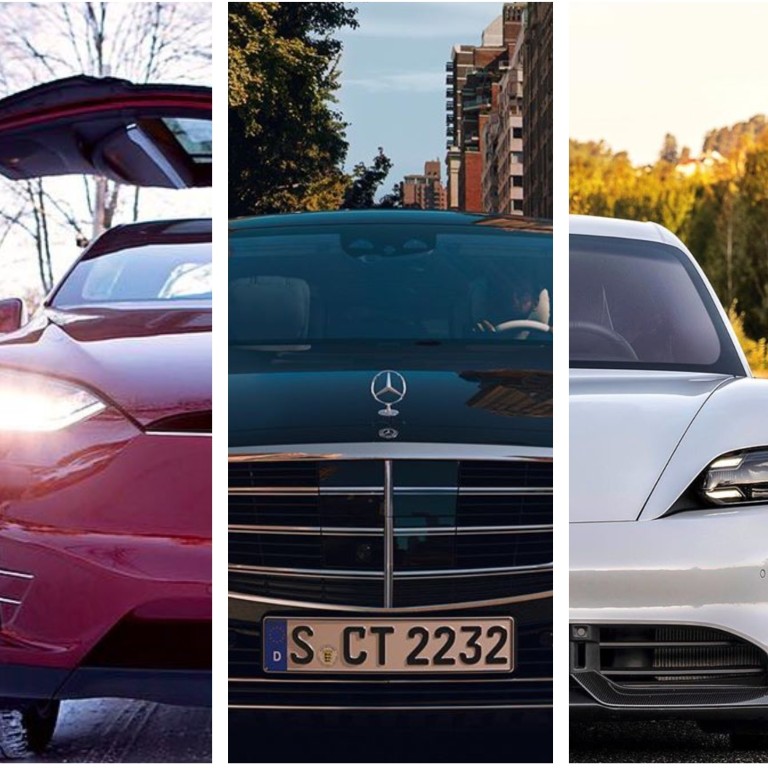Can Mercedes and Porsche ever catch up with Tesla’s Model S? How Elon Musk’s innovative electric car is shaking up the luxury motor market

Luxury and innovation go hand in hand. This may sound surprising at first, but luxury is first and foremost the ability to create extreme value from the perspective of customers. The price is a reflection of the value. No extreme value creation, no ability to price, no ability to sell. It’s that simple.
7 fastest luxury electric hypercars that will blow your mind
The luxury car sector is a great example. Tesla entered the market less than a decade ago with the electric Model S sedan and then added the Model X SUV in 2015, with both cars exceeding the US$100,000 price point.
The innovation that these cars brought into the luxury car segment has been unprecedented: acceleration that makes all incumbent competitors look pedestrian, zero emissions, partial self-driving capabilities, a revolutionary context-sensitive touch-screen interface reducing the number of buttons to close to zero, a proprietary charging network for an end-to-end brand experience, a game-changing direct-to-consumer retail approach without dealers and discounts, and a radically simplified overall in-car experience.
How Elon Musk just got even richer with a US$55 billion payday
Other car companies are in an even worse position. Neither BMW, Audi nor Mercedes have a car that closely competes with Tesla. Mercedes has just launched the latest version of their brand-defining S-Class. Traditionally, it has been the undisputed automotive innovation leader. Practically every major car-making innovation was first tried in the S-Class, often years before appearing in any other car.
But this newest edition merely imitates Tesla’s eight-year-old UX with several large screens – it doesn’t raise the bar with any game-changing new functions. The first Mercedes with a large touch screen is merely following Tesla’s lead. Refinement maybe, innovation no. On top of that, it is not electric. The new S-Class will certainly sell well among diehard brand enthusiasts, but the rapidly declining market share and shrinking profit margins of Mercedes indicate that the exodus of progressive, inspiration-seeking customers has already started. BMW and Audi are in a worse position: their flagship models have been on the market for some years, so their ability to inspire has already faded.
How China’s young women are driving growth in the luxury car market
Tesla’s market capitalisation now exceeds the capitalisation of all German car brands combined. Many critics argue that the incumbents offer more luxurious interiors but history shows that this is not enough. In luxury, following, no matter how fast, does not create extreme value. When brands become predictable and there is no surprise, then customers move on. Incumbent car CEOs should be worried and need to step up their game.
Want more stories like this? Sign up here. Follow STYLE on Facebook, Instagram, YouTube and Twitter .
This article originally appeared on Jing Daily.

Would you spend big for a game-changing electric car with trendy touch screens, or a luxury motor with traditional tailored upholstery? Tesla’s revolutionary zero emission models show that near-instant acceleration and direct-to-driver sales capture imaginations, making Musk’s models more highly valued than old-school brands